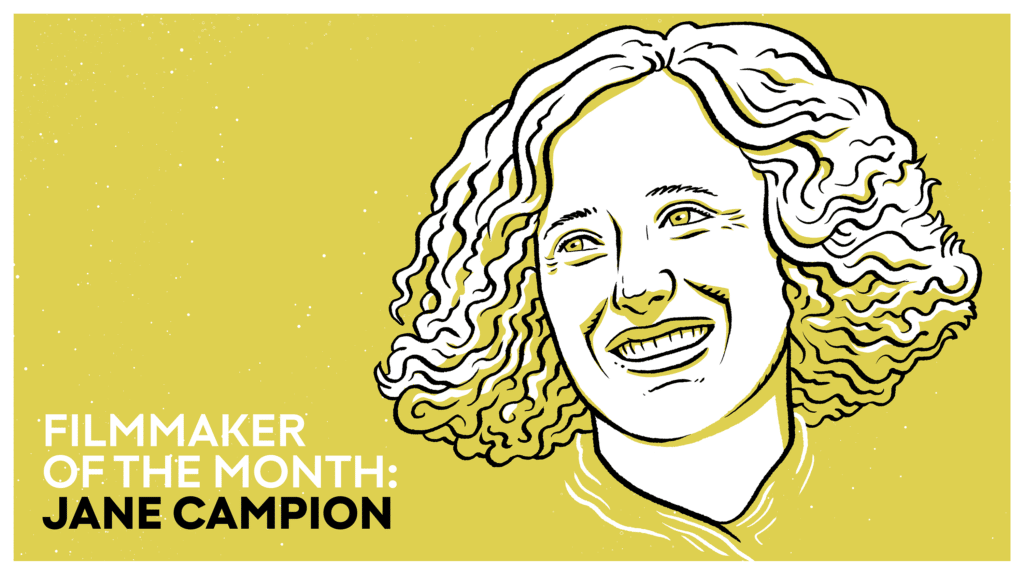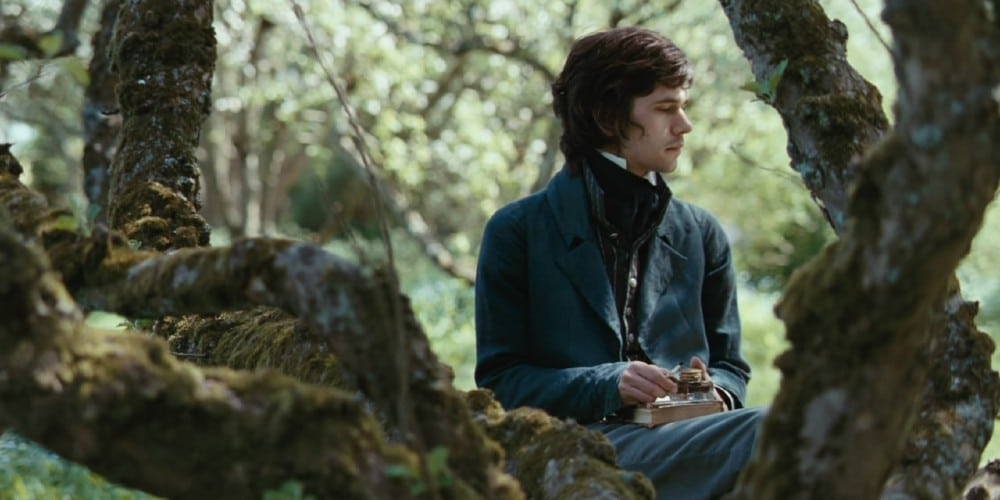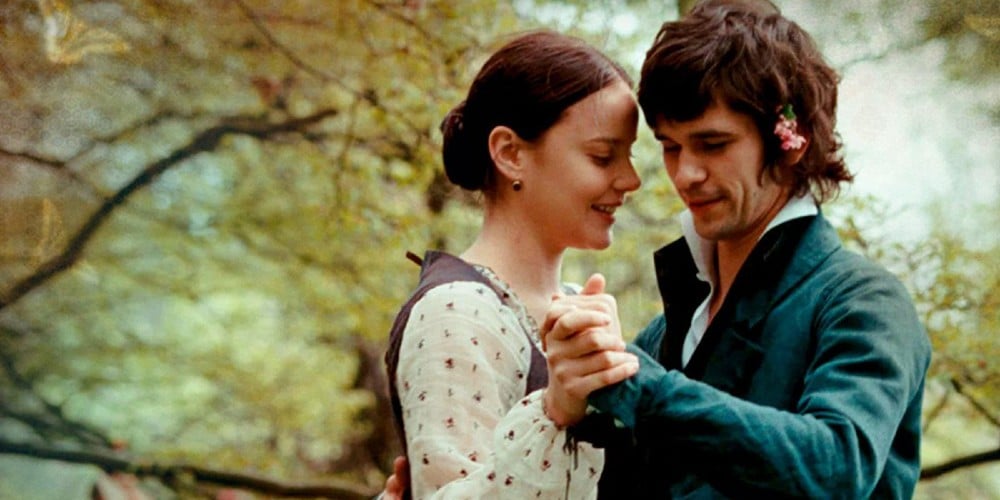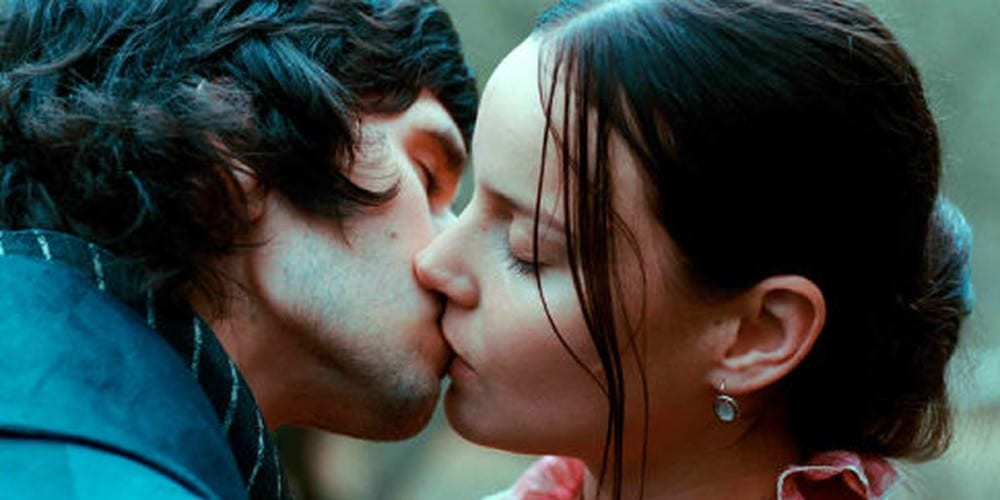Jane Campion’s chronicle of Fannie Brawne and Romantic poet John Keats’ courtship is a masterful study of longing and star power.

I first came to Bright Star through gifs and screenshots, posts on #aesthetic Twitter and Tumblr accounts devoted to sharing loving looks at beautiful people on film. I was already a fan of Ben Whishaw when I became aware of Bright Star, having fallen wholly in love with the entrancing actor in Cloud Atlas and Perfume: The Story of a Murderer. With his swoopy hair, his sad eyes, and his impossibly-beautiful waif-like frame, Whishaw can convey longing like few others on screen, positively vibrating in both films with unfulfilled artistic promise and an aching desire to be known, to be loved, to be seen.
Jane Campion makes fantastic use of her bright stars in this film, filling the frame with loving closeups of her actors as they gaze upon one another’s features. The film is ostensibly “about” John Keats the Romantic poet (Whishaw) and Fanny Brawne (Abbie Cornish), the unconsummated love of his life who lived next door. On another level, though, the film is about the erotics of looking, and of being looked at. Bright Star is not particularly plot-heavy so much as it is a film to be absorbed, to lose yourself in. In other words, it is best to approach Bright Star the same way John Keats tells Fanny Brawne to think about poetry. “A poem needs understanding through the senses,” he tells her. “The point of diving in a lake is not to immediately swim to the shore, but to be in the lake, to luxuriate in the sensation of water.” We need not rush headlong toward the inevitable tragic end of this romance; Keats, after all, famously died at twenty-five, unappreciated and destitute. Instead, viewing Bright Star, we should simply let it wash over us, to luxuriate in its sensuality.
It is tempting, then, to approach the writing of this piece the way Keats wrote much of his poetry: attempting, in some ephemeral way, to capture the experience of looking at a thing, pondering its many angles, its meanings, its metaphors, and its physicality. “Ode on a Grecian Urn” finds the poet considering the object, and considering the images upon it, freezing the urn in time the way the urn freezes “men or gods.” It’s tempting to try to replicate what Bright Star attempts to do the same to Keats himself.

One method of this approach to this film would be to receive it the way so many people on Twitter and Tumblr do: simply by filling your screen with gifs and screenshots as if to say, If you want to understand Bright Star, all you need to do is allow yourself to gaze upon Ben Whishaw, seen here petting a cat by a fireplace while the fading evening light plays across those impeccable cheekbones. Isn’t it wonderful to watch an actor like this? Look at him, resting his head upon Abbie Cornish’s breast, the light outlining his profile just so, nestled there in the crook of her neck. See him here, gazing out a window at the blurry shape of his loved one, his hair soaked with sweat and sickness. Watch him, really take him in, really look, in the same way that he really looks.
As the film opens, Keats’ poetry is not particularly well-received, by either the public or by Fanny Brawne herself. A man offers a defense of what he writes, though, noting Keats’ unconventional rhymes and his arresting imagery. “There are immaturities,” the critic allows, “but also, immensities.” There are immaturities and immensities in this method of viewing Bright Star, too. Prioritizing the act of looking at a film would seem to suggest that we are not actively engaging with it, but one needs to simply pay attention to Campion’s camera movement and in particular, her use of shifting focus, to realize how crucial and poetic the very act of looking is made to be here. Often, while one character is engaged in an activity with their hands — sorting through a chest of belongings, say — Campion’s camera shifts focus to the character in the background, and for a moment, we just watch, merely witnessing one character as they observe the other. Look; see the way Ben Whishaw’s eyes dart around the room, the way he is both purposeful and manic as his eyes endeavor to take in every dimension of his love. See; take in the film as Abbie Cornish stares at her love as he wastes away before her very eyes.
Important, too, are times when we are not permitted to look as closely as we’d like. We glimpse Keats through an icy window, his frame almost blurred into nothingness, just before he takes ill. Convalescing inside, kept away from the harsh winter of the English countryside, Keats watches Fanny as she looks in on him, her face ever-so-slightly blurred by the panes of the window. “I get anxious,” he confesses aloud, “if I don’t see her.”

Early in their courtship, Keats tells Fanny about a dream he had, one where he floated above the treetops, his lips connected to “a beautiful figure.” She asks if she was that figure, and, after gazing at her for a moment, playing coy, he says, “I must have had my eyes closed, because I cannot remember.” He is sleeping, and dreaming; his eyes are both closed and open, seeing beauty anyway.
The relationship between the two was famously unconsummated, so this is not a voyeuristic film, not one that takes pleasure in letting us look at the naked bodies of actors on screen sexually. Instead, the erotics of their relationship depend upon looking one another in the eye. When they do kiss, they always pause for a moment, their eyes level with one another, taking each other in before they finally touch. The final night they spend together, finally curled up together in bed, Fanny tells him that she would do anything he asks. All that he wants is to be able to behold her, and in one of the film’s most arresting images — an overhead shot of them both on the bed — they merely lay there, staring into one another’s eyes.
The sequence I return to again and again — one that contains both immaturities and immensities — comes early in the film, shortly after that first kiss, shortly after Keats speaks of seeing with his eyes closed. As the lovers make their way out of the woods and back to where their families are resting, the path is led by Fanny’s younger sister. She keeps turning to look at them, and they play a childish game with her: every time she looks back and sees them, they freeze. They steal their kisses between moments of being looked at, and her gaze pauses their casual touch and their smiles and their laughter; it’s as if the child is a flashing camera, her gaze able to capture and preserve love and life only through small, intimate moments of visual connection.

If Bright Star is not about looking above all other senses, how else are we to interpret the climax of the film, when Fanny hears that Keats has died? She takes the news stoically at first, merely staring off into the distance as she hears a letter about his death read aloud. Then, when she hears that Keats “died imperceptibly,” she is shattered, reduced to a shuddering, moaning wail, no longer able to breathe. She was there to look at him as long as she could, but he died away from her, sent to Italy to convalesce in a milder winter. He died not just away from her loving touch, but away from her perception. No one witnessed the precise moment he died, and to her, that is more than she can bear. Because she would have seen it.
“Let’s pretend I will return in spring,” Keats says on their last night together, which feels to me at times like one of the most aching lines in all of cinema. He will not return. This is one of the last times they see one another; the following morning, the morning he leaves, he cautions her, “Not a word.” All that is left is to look, but as he climbs into the coach to begin his journey away from her, she turns her back.
And if we feel hollowed out by his death, as bereft as Fanny Brawne is… which we do, which we are… all that is left for us is to start the film over again, to watch once more as the lovers behold one another. To luxuriate once more in the waters of the lake.